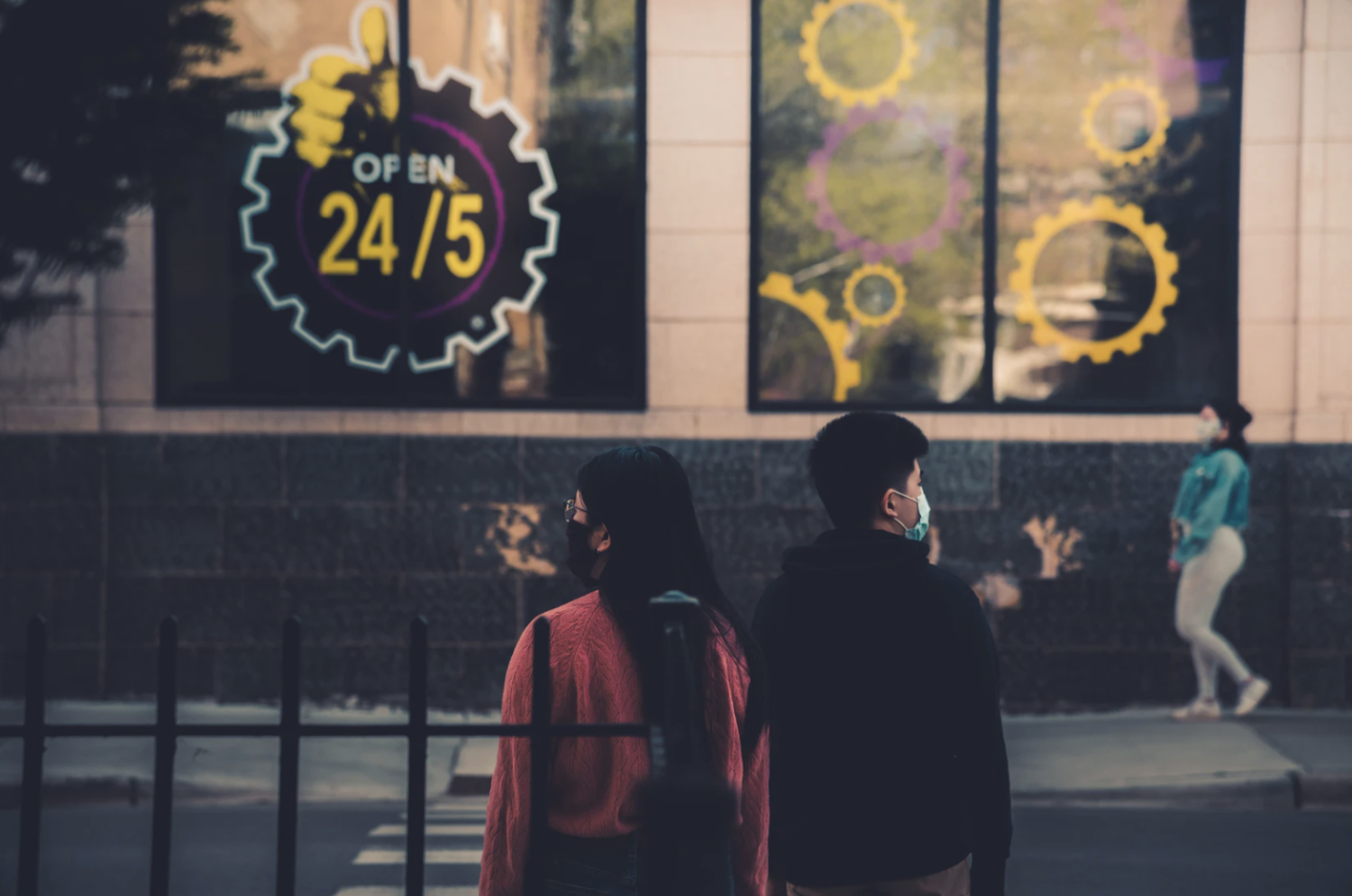On a beautiful day in March, I drove past a pond near my house in Boston. It was more crowded than I had ever seen it. I came home anxious and upset to have seen so many people outside, close together and vulnerable. Anxiety quickly turned to anger, and I wrote two strongly worded emails to the offices of Governor Charlie Baker and Mayor Marty Walsh, requesting that they implement a shelter-in-place order. In a moment of overstated but perhaps appropriate melodrama, I signed off, “Please act, fast” in lieu of “Sincerely.” I never received a response.
I held the right people responsible in the beginning. Although I didn’t like the people’s behavior, my response was directed to the leaders in my state. I didn’t see the crowds as failings of the general public; I saw them as failings of my government officials.
However, since then, I’ve found myself getting angry at the wrong people. Why are there so many people packed into that burrito place? Why are those people going on vacation? Why aren’t those people wearing masks? But, in asking myself these questions, I’ve forgotten that it is not my job alone to stop or slow this pandemic. It’s not yours either.
We have mayors and governors and public health officials and transportation authorities and other people with power that have the right to tell us what to do. But, in response to this pandemic, we have created a twisted narrative of personal responsibility that distracts us from their failings.
Healthcare workers posed for pictures holding up signs that say “Stay home for us!” And I did. Particularly in March and April, when parts of the United States were under strict lockdown, these types of messages from healthcare workers were poignant reminders of one reason why we were staying home. But staying at home didn’t fix the severe shortages of PPE and ventilators that plagued the hospitals hit hardest by COVID-19. It didn’t give hospitals more beds or nurses shorter shifts. It didn’t help health officials contact trace effectively. It didn’t give state health departments the supplies they needed to do ample COVID-19 testing.
Signs in stores urge customers to wear their masks with warnings like this one, from a thrift store: “We’ll be happy to debate the efficacy of masks with you when this is all over and you come in to sell your dead grandmother’s clothes.” While a blunt message, the sentiment is correct: You absolutely should wear a mask any time you enter a business or have to be near other people. I appreciate the ways that stores have gotten creative warning customers about these mandates. But your mask alone will not halt the pandemic. Mine won’t, either.
Personal responsibility has a place within our pandemic response, and we should do all that we can to prevent the spread of COVID-19. However, the reason this pandemic is continuing to rage is not because of selfish beachgoers. It’s not because of stubborn customers who refuse to wear masks. It’s not because Americans got too bored of quarantine. It’s because our leaders are pushing personal responsibility without adequately acknowledging or addressing the obstacles disadvantaged Americans face. “Just stay home” doesn’t work for the Americans without the resources to do so.
Some Americans can’t stay at home because they’re being evicted. They’re worrying about paying rent because their unemployment benefits are expiring. They’re essential workers at a meat plant without proper protection where hundreds of their coworkers have tested positive for COVID-19. They’re worried about paying bills. Their sick pay is inadequate. They’re undocumented, and justifiably afraid of seeking healthcare. They’re incarcerated, along with millions of other Americans, and they are not in control of their contact with others. They are in overcrowded, old prisons without access to adequate testing, prohibited from using effective cleaning supplies.
These structural issues are the responsibility of our elected leaders. There’s a lot that I am willing to do — and not do — to protect myself and my loved ones. There’s a lot I’m willing to do because I feel that it’s right. There’s a lot I think others should do because it protects them and their loved ones. But I am not willing to blame a national crisis on individual behaviors. We are not a middle school class, forced to miss recess because a few kids are misbehaving. We are a country that is struggling to contain a pandemic, to curb an unemployment crisis, and to address instances of inequality and injustice that have lingered in our society for far too long.
So, the next time I see someone not wearing a mask when I think they should be, or I see someone getting too close for comfort, I’m going to reflect on exactly how many people that person is impacting. Then I’m going to reflect on how many people are impacted when our government officials fail us. Let’s hold the right people accountable.
Image by Max Bender is licensed under the Unsplash License.



